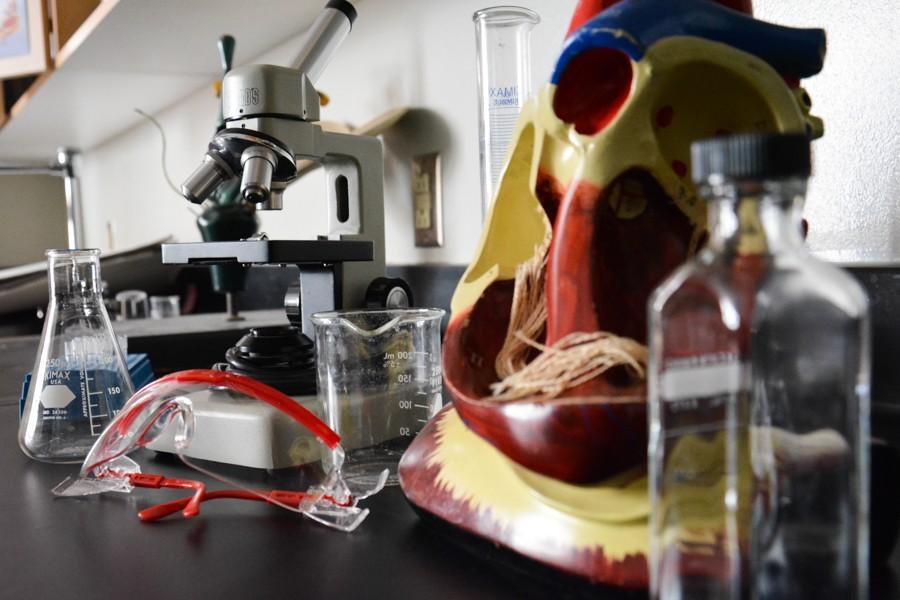BSM Science Department makes class changes for the 2015-2016 school year
BSM’s Science Department is making some major changes to be implemented in the 2015-2016 school year.
As students enroll in classes this spring, a variety of new classes within the science department will be available to them. The department has created the classes of Honors Biology and Biomedical Science, changed the name of Accelerated Chemistry to Honors Chemistry, and combined Environmental Science and Ecology to form a new class called Ecology. After much deliberation between the administration and the science department, it was additionally decided that Advanced Placement (AP) Biology will be cut from the curriculum.
Biomedical Science, one of the classes that will begin next year, will teach students how the systems of the body work together to maintain health. The class will be taught by Ms. Kirsten Hoogenakker, who is a current engineering teacher, and Ms. Jennifer Roushar, current biology and chemistry teacher, and it will be offered to sophomores, juniors, and seniors. “The class will go through a lot of body systems and how they function more in depth than a regular biology course. It will be focused on medicine and medical technologies,” science department chair Ms. Lindsey Novak said.
Minneapolis is a biomedical hotspot, headquartering many companies such as Medtronic and Boston Scientific. With many students showing an interest in the biomedical field, Biomedical Science will be a good addition to the science department. “Because we live in an area with a high density of biomedical companies, I think it is a good idea to have this class. The first year will be focused on medicine,” Hoogenakker said.
Similar to biology, the biomedical science class will offer dissections and other real life scenarios. “Mainly it will be lab-orientated, trying to put students in the role of a biomedical professional investigating the issues,” Novak said.
While there has been much discussion as to whether not offering AP classes is a good idea, the science department has found that there are many advantages to the decision to not offer any AP science classes.
The BSM science department encourages an inquiry-based learning curriculum which allows students to develop analytical thinking styles that will benefit them in the real world. “AP science offerings tend to be focused more on content coverage and less on higher order thinking skills, problem solving, analysis, collaboration and creativity,” senior high principal Dr. Susan Skinner said.
Five years ago, the department underwent an external review regarding the curriculum offered under the discretion of a science professor from the University of St. Thomas. Throughout the review, interviews were conducted with faculty members and the curriculum was evaluated. The department decided to continue offering AP Biology until the interest level declined to a point where the class is no longer beneficial to the students. For the 2014-2015 school year, only 11 students enrolled in the class, marking a downward trend from years past.
While college credit can be gained through performing highly on the AP tests in May, most colleges require the science class is taken again within their college. “Colleges and universities will want STEM majors to take their science curriculum instead of accepting AP credit for degree requirements,” Skinner said.
Beginning in the 2015 school year, BSM will not be offering any AP science classes, with the hope to further benefit students’ learning. “As the College Board continues to revise the AP science curriculum, we may opt back in to offering these courses,” Skinner said.




































![Teacher Lore: Mr. Hillman [Podcast]](https://bsmknighterrant.org/wp-content/uploads/2025/03/teacherlorelogo-1200x685.png)





